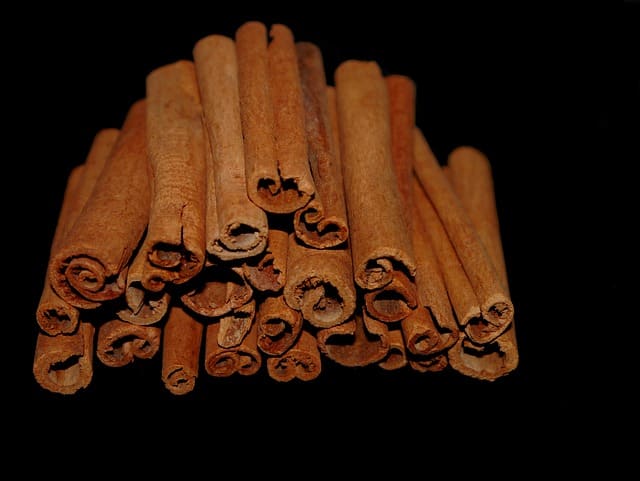Recently we spoke about 6 spices that are better bought whole and ground at home when you need them. Some spices are just more flavorful and aromatic when they are ground fresh by you, at home.
On the other hand, there are some spices that aren’t worth grinding yourself and are better purchased already ground. In this case, you can easily find these spices preground and at a pretty reasonable price.
Some spices like cinnamon, nutmeg, star anise, fennel seeds, cloves and mace are better to buy ground as they are harder to grind and you may need a specific grinder to do so.
Cinnamon for example is sold in sticks that are curled and very hard. While you can grind them yourself, you’ll probably wish you didn’t put the time and effort in if you try. Why not just buy a bag from the store that is already professionally and consistently ground?
Here’s a quick summary of spices that you are better purchasing already ground and ready to use.
Spices that are better purchased already ground
Some spices that are typically better purchased ground up include:
Cinnamon
Comes in long curled stick form and is very hard. As such, it can be difficult to crush consistently and takes too much work to do at home. Cinnamon is easily found already ground in packets anywhere spices are sold.
Nutmeg
Nutmeg is difficult to grind because it is a hard, dense seed. It can be hard to crush or powder without the use of specialized tools or equipment, such as a dedicated nutmeg grinder or a mortar and pestle. Additionally, the fragrant oils within the seed can cause it to be sticky, which can make it more difficult to grind.
Star anise
Star anise is hard to grind because it is a hard, woody spice with a tough outer shell. The eight points of the star shape also make it challenging to grind uniformly. Additionally, the oils within the seed can cause it to be sticky, which can make it more difficult to grind.
Fennel seeds
Fennel seeds are hard to grind because they are small and have a tough outer coating. The small size of the seeds can make it challenging to grind them uniformly, and the tough coating can make it difficult to break them down. It’s too much work to grind it into a consistent powder yourself.
Cloves
Cloves are hard to grind because they are very hard, dense and dried flower buds. They have a tough outer shell which makes it difficult to grind into powder. They also contain a high amount of essential oil which makes them more challenging to grind. As with other spices on this page, it’s too much work to grind them into a consistent powder.
Mace
Mace is hard to grind because it is the thin, lacy outer covering of nutmeg, which is a hard, dense seed as described above. The delicate and thin nature of mace makes it challenging to grind without tearing or shredding it.
Final thoughts
Ground spices have a stronger and more consistent flavor than whole spices, which can lose their potency over time. They also tend to be more convenient to use in cooking, as they can be easily measured and added to dishes without needing to be ground first.
Additionally, ground spices can be used in a wide variety of dishes, from soups and stews to marinades and rubs.
As to what you should store spices in, it depends on how quickly you plan on using the spice and also to be blunt, how much you actually care about the subject. While some spice aficionados are happy to purchase airtight glass containers that protect spices from the light, you might be happy to store your spices in their original packaging whether a plastic bottle or bag or glass jar.
Summary
Some spices like the ones mentioned above have a hard texture that can make them challenging to grind using a traditional mortar and pestle or even a spice grinder. They also tend to have oils that can make them more challenging to grind yourself.
Additionally, some seeds such as cardamom can be tricky to grind as they have a hard outer shell and a soft inner seed.
These days it’s best to only grind spices that are best consumed freshly ground and leave the hard spices to the pros to do for you.

